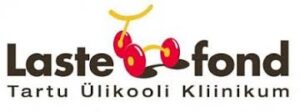SINCALA II
In Europe, 80% of all chronically ill people are taken care of by informal carers – people who provide unpaid care outside of a professional or formal framework. While caring for a loved one can be a source of great personal satisfaction, it also creates challenges, like physical and mental health problems, a feeling of social exclusion, difficulty in balancing paid work with care responsibilities and other possible financial worries (Eurocarers).
Although when a family member has a chronic illness or disability one of the relatives often acts as the “primary care provider”, in which roles are often reversed (i.e. a child taking care of their parent) which often affects all family members (Wright and Leahey, 2000). A functional relationship among caregivers and care recipient is the key for a successful change of roles and the adaptation of the family, therefore, supporting only the primary carer is not enough. Furthermore, people belonging to different age groups and with different kinships to the care-recipient (young/adult children, grandchildren, spouses) can have different experiences and perspective on the burden of care, so it is necessary to take all of them into account in order to be able to provide comprehensive and effective support. Research has also demonstrated that the caregiver stress that often arises in informal caregiving situations can lead to situations of abuse. Almost 10% of older people who are cared for by family caregivers are at risk of elder abuse (Ananias, Strydom, 2014).
In order to respond to all these needs the partnership believes in the importance of developing and piloting a model of pedagogical interventions based on a family-focused approach able to identifying strengths as well as vulnerabilities of all family members, addressing the challenges that might arise from the disease and building individual and family resilience.
The educational tools developed will be based on experiences carried out in Greece, by Alzheimer Hellas, and will be adapted and transferred to all other country contexts. The main practical results expected on the completion of the project are:
(1) a tested narrative based workshop for informal caregivers, adapted to different EU-country contexts, and targeting households who are caring for older dependent family members with the goal of increasing their family-resilience;
(2) guide for professionals to identify and address issues that emerge from workshops;
(3) a MOOC, to transfer the results achieved and the lessons learnt to a wider audience of professionals;
(4) E-course and online educational platform for informal care givers and professional support providers.
More info: www.sincala.eu
Partnership:
Women’s Support and Information Centre NPO (lead) (Estonia)
University of Tartu (Estonia)
Greek Association of Alzheimer’s Disease and Related Disorders (Alzheimer Hellas) (Greece)
Anziani e Non Solo (Italy)
CASO50+ Centro de Atendimento e Servicos 50+, Associacao (Portugal)
Spominčica (Forget-me-not) – Alzheimer Slovenia
Union of Women Associations of Heraklion (Greece)
Project Manager:
Mari Puniste, mari.puniste@naistetugi.ee, +372 51 986 544








